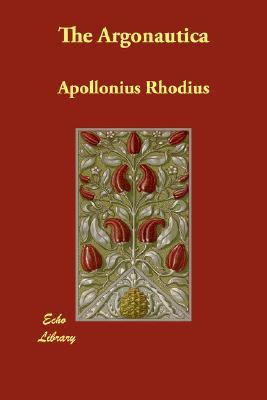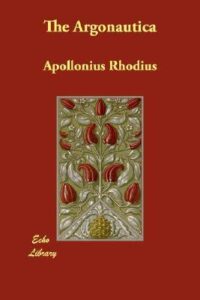INTRODUCTION
byIntroduction to the life and legacy of Apollonius Rhodius begins in Alexandria, where the roots of Hellenistic scholarship took firm hold during the reign of the Ptolemies. Although precise dates remain unclear, Apollonius is believed to have worked within the vibrant intellectual landscape that defined the Alexandrian era. His most notable creation, the Argonautica, did not immediately receive acclaim. In response to initial criticism, he traveled to Rhodes, where the revised version of his poem was met with greater appreciation. This successful reception earned him the title “Rhodian,” not just by geography but by recognition. Despite debates surrounding his possible leadership of the Library of Alexandria, his contributions to the city’s cultural prominence remain undisputed. Apollonius is frequently mentioned alongside Callimachus, though not always in harmony, due to the intense literary and personal rivalry that marked their relationship.
Their disagreement extended beyond personal dislike—it reflected the literary tension between tradition and experimentation. Apollonius favored longer, narrative-driven poetry reminiscent of Homer, while Callimachus promoted shorter, tightly structured works grounded in learned subtlety. This divergence fueled their hostility, leading to public exchanges that illuminated the fiercely competitive spirit of Alexandrian scholars. Their feud wasn’t merely a clash of personalities but a symptom of a larger shift in artistic values. Callimachus’s refined miniaturism clashed with Apollonius’s attempt to revive the grandeur of epic, which had become unfashionable. In defending his poetic choices, Apollonius showcased a deliberate commitment to reviving old forms with new sophistication. Their rivalry, though hostile, contributed to the richness of Alexandrian literature by pushing boundaries and forcing innovation. Even today, that tension between poetic schools offers insight into how cultural evolution often emerges through opposition.
In composing Argonautica, Apollonius stepped into the realm of epic with bold intentions. Unlike Homeric unity, his narrative unfolds episodically, reflecting a scholarly style more attuned to detail than to sweeping momentum. The voyage of Jason and the Argonauts becomes not just an adventure, but a literary tapestry woven with references to geography, myth, and folklore. This approach mirrors the Alexandrian obsession with learnedness—poetry not merely for listening, but for decoding. The love story between Jason and Medea is given particular attention, showcasing emotions with an intimacy uncommon in earlier epics. By placing this romantic core at the heart of the narrative, Apollonius redefined the purpose of heroism—less about brute strength, more about human connection. His treatment of Medea as complex, emotionally nuanced, and powerful adds psychological depth to the epic form. Through her, the poem explores the blurred line between divine favor and personal betrayal.
The emotional impact of Argonautica helped shape later literary trends, especially in Rome. Latin poets such as Virgil and Ovid found inspiration in Apollonius’s Medea, echoing her passions and conflicts in their own characters. The balance between scholarly allusion and storytelling in his work bridged the divide between Hellenistic precision and epic grandeur. His writing, though initially dismissed, came to represent a successful hybrid—maintaining classical themes while introducing modern complexity. Apollonius did not simply imitate Homer; he questioned him, updated him, and gave his audience new emotional anchors within an old structure. The voyage for the Golden Fleece transforms into a metaphor for poetic exploration, with each island offering another facet of knowledge or cultural commentary. As such, his work reflects both the physical journey of the Argonauts and the intellectual quest of Alexandria’s literary elite.
Apollonius’s influence extended beyond his lifetime, shaping poetic traditions and scholarly techniques for generations. His use of localized myths, obscure references, and metrical finesse offered a new model for poets seeking depth beyond action. While Homer’s tales roared with heroism, Apollonius offered a quieter power—an epic where emotion and intellect sat side by side. Even his treatment of divine intervention is more restrained, reflecting the evolving relationship between mortals and gods in post-classical narratives. In this shift, the poet acknowledges a changing world—one where fate is no longer dictated by Olympus alone, but by the minds and hearts of the heroes themselves. The Argonautica, then, becomes more than a story—it becomes a dialogue with the past and a pathway to the future of literature.
Ultimately, the Argonautica is not remembered for its battles or its beasts, but for its careful craftsmanship and emotional resonance. Apollonius wrote in an age of critics and scholars, and his poetry had to survive both scrutiny and shifting tastes. His legacy endures because he managed to blend the grandeur of myth with the intimacy of personal conflict, redefining what epic could be. The story of Jason and Medea remains one of the most compelling in ancient literature, not simply because of what happens, but because of how it’s told. With each line, Apollonius invites readers not only to witness a journey, but to participate in the intellectual and emotional voyage of the poet himself. Through this, his work continues to speak—across time, across language, and across tradition.


